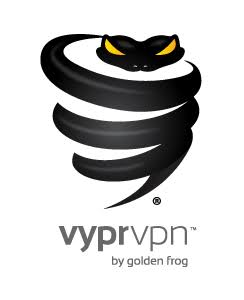Best VPNs for Windows (2024)

- Always evades internet control in the PRC
- Keeps ahead of the Netflix VPN detection algorithm
- Benchmark tests show excellent speed

- More US city locations than its rivals
- Includes malware protection
- No-logs policy

- Golden Frog, the business behind VyprVPN also runs a gaming platform
- VyprVPN pioneered obfuscation techniques and they have always worked well
- VyprVPN’s no logs policy is confirmed by an independent audit
The days when VPNs were just an attribute of the cyberpunk culture are long gone. Today, virtually everyone should be using a VPN to protect private data because the traditional antivirus/firewall bundle is simply no longer effective.
From the moment you go online, a few dozen entities begin profiling you. Your very own ISP, search engines, social networks, ad agencies, data dealers, app developers, the Five Eyes, the hackers – each have a reason to collect your data and trade it. So tools that protect your private data are just about as vital as locking your front and back door at night.
Got Windows? You’ve probably got problems
Windows, being the world’s most ubiquitous operating system, is also one of the most targeted. After all, the more widely adopted an OS is, the more attention it attracts from nefarious actors because the cost of an exploit kit is cheap and its ROI is high.
Windows 10, which was released back in 2015, came bundled with privacy issues, including DNS leakage, and extensive data collection settings. True, Microsoft religiously releases patches and fixes, and with proper digging, you can disable some of the privacy-invasive settings. But if you are a Windows user, you need to understand that your OS is one of the most highly targeted and protects your security and privacy accordingly.
VPNs add a solid layer of protection to your browsing activities. They encrypt your traffic, let you access location-restricted websites like Netflix, and conceal your browsing activity from the curious eyes of your ISP.
What to look for in a VPN for Windows
Weeding through a dozen VPNs is daunting, I know, but since at the end of the day, you’re choosing a security tool, you really should take your time. To help you with the research, I’ve created this roundup of features you’ll want to pay particular attention to when choosing a VPN for a Windows-based device:
- Provider Location: Depending on the data laws governing the geographic location of where the company is headquartered, a VPN provider may or may not be able to protect your data, irrespective of published zero-logging policies.
- Logging: If privacy is one of your major concerns, you’ll want to pay careful attention to zero-logging providers. Transparent providers always state their logging practices upfront – no evasive waffling or fine print clauses.
- Encryption: AES-256 encryption is the current golden standard for VPNs, complete with Perfect Forward Secrecy.
- Speed: Since VPNs encrypt data and route your traffic through servers located around the world, you may notice a drop in connection speeds. Reliable providers, however, have the means to mitigate this negative side-effect and give you the speeds you need to stay productive.
- Price: Reliable providers are always transparent about their pricing structure, offer free trial periods, money-back guarantees, accessible support, and/or comprehensive FAQs.
- Server Locations: A wide range of server locations means you can switch IPs with ease, and bypass location-locked websites.
- Limitations: Some providers cap bandwidth or do not support P2P, so if you’re planning to torrent, check the feature set carefully.
VPNs are extremely convenient and efficient tools for both savvy and novice users concerned about privacy and security. They let you use public WIFi safely, access region-restricted streaming websites, hide your browsing activity from your ISP and enjoy encrypted browsing. The providers I included on my list provide a reasonable combination of flexibility and ease of use so you can enjoy hassle-free browsing without compromising on security.
1. ExpressVPN

- Always evades internet control in the PRC
- Keeps ahead of the Netflix VPN detection algorithm
- Benchmark tests show excellent speed
ExpressVPN is based in the British Virgin Islands, outside the “14 Eyes” jurisdiction. The company maintains a strong stance on privacy and offers OpenVPN and AES-256 encryption to scramble your traffic and conceal it so your ISP can’t read or log it. They don’t log DNS requests, traffic, or IP addresses, but they do log timestamps and bandwidth.
Pros
- Installs on routers
- Simultaneous connection allowance of five devices
- Split tunneling
- Large choice of server location
- Very strong connection encryption
Cons
- One of the most expensive VPN services
- China blocks its main website (but not functionality)
- Live chat support is not always responsive
ExpressVPN offers ease of use, good speeds, and a wide range of servers across 87 countries. P2P and torrenting are allowed, so this VPN works well for data-intensive tasks, and streaming is both smooth and seamless. Top this off with a sleek and easy-to-use client, the ability to pay with Bitcoin, fast and friendly support service with live chat, and you get a hassle-free experience that even the most tech-challenged will probably love.
They, unfortunately, limit users to three devices but do support many platforms so you can run it on both desktop and mobile devices.
ExpressVPN has three subscriptions starting at $12.95/month, which drop down to $8.32/month if you subscribe to a 12-month plan. This definitely isn’t the cheapest service on the list, but it offers a decent combination of privacy, speed, and ease of use.
2. NordVPN

- More US city locations than its rivals
- Includes malware protection
- No-logs policy
NordVPN is a Panama-based provider with an impressive set of features and a reputation for excellence. The speed and performance of NordVPN are top-notch, with 830+ server locations across 57 countries – and counting. It’s easy to switch servers, access streaming websites like Netflix, and bypass region-based restrictions. Plus, you can choose servers to deliver specific types of content (ultra-fast, ultra-secure). Nord doesn’t cap your bandwidth or restrict any file types, and the Windows client is easy to set up and use.
Pros
- A large number of servers
- Threat protection with a proprietary security system called CyberSec
- Split tunneling
- Obfuscated servers for China and other locations where VPNs are discouraged
- No-logs policy
- Automatic wi-fi protection
Cons
- Parts of the server network have poor download speeds
- No servers in India
- Onion over VPN can be slow
NordVPN deploys a unique, double-encryption tactic, adding another layer of protection to your data. They also state a zero-logging policy, use their own DNS servers, and offer a Kill Switch, so if your VPN connection suddenly disconnects, the Kill Switch will shut down any website or program you specify. Nord allows up to six devices per user, so you should be able to cover all your VPN needs with just one account.
The prices aren’t the cheapest, and a 1-month subscription will set you back $11.95 monthly. This drops down to $5.75 per month if you buy a 12-month subscription, and your purchase comes with a 30-day money-back guarantee. 2-year subscriptions offer very steep discounts.
3. VyprVPN

- Golden Frog, the business behind VyprVPN also runs a gaming platform
- VyprVPN pioneered obfuscation techniques and they have always worked well
- VyprVPN’s no logs policy is confirmed by an independent audit
VyprVPN is a robust VPN service based in a country that’s home to an extremely privacy-friendly climate: Switzerland. VyprVPN has an impressive network of 700 servers in 70 different locations, and 200,000 IP addresses allow for unlimited switching. So, accessing sites like Netflix, Hulu, or BBC iPlayer is a no-brainer. They own and operate their servers, so no third parties can mingle with your privacy. On top of that, they deploy a unique Chameleon technology to bypass state-imposed censorship blocks.
Pros
- Dodges detection, even in China
- Simultaneous connection allowance of ten devices
- Split tunneling
- Large choice of VPN server locations
- Can unblock a lot of premium streaming services
Cons
- One of the most expensive VPN services
- No VyprVPN app for Linux or Chrome OS
- No browser extensions
- Can’t get into Disney+, ABC, NBC, or Channel 4
VyprVPN does not cap bandwidth, nor restrict torrenting of any file types. The Windows client is easy to set up and use, with neat and self-descriptive buttons that provide fast access to VPN’s many features.
Just as refreshing as their feature set is the fact that the payment structure is straightforward. Once you register, you can test the service for three days for free. Three subscription levels are available – Basic, Pro, and Premium – all with a monthly or yearly billing option. The Basic plan starts at $5 per month for an annual subscription and the Premium comes in at $6.67 per month. Both the Pro and Premium plans grant you protection from Deep Packet Inspection.
Overall, VyprVPN offers robust security, intuitive controls, and extra perks, but its low-tier plan is limited to only three devices, which can be a bit of a hassle if you’re anything like me.
4. IPVanish

- No limit on the number of devices you can connect at the same time
- SOCKS5 proxy, which its main rivals don’t have
- More VPN servers in more US cities to dodge blackouts
IPVanish is a Phoenix-based provider offering 256-bit AES encryption, a zero-log policy, unlimited bandwidth, and a laundry list of perks like anonymous unlimited torrenting, coupled with fast speeds and flawless performance. IPVanish has servers in 60+ countries and provides smooth streaming from BBC iPlayer and Hulu. You can bypass region restrictions, remain anonymous, enjoy high speeds, and conceal your traffic from your ISP.
Pros
- Good at dodging blackouts on US sports streaming sites
- A large IP address pool
- Split tunneling available
- Strong IP leak protection
- IPVanish support is available around the clock via chat and email
Cons
- No app for Linux
- No browser extensions
- 30-day money-back guarantee only for the annual plan
- Prices increase after the first subscription period
- No malware or antivirus service
Subscriptions start at $10 per month in a monthly plan and decrease to $6.49 per month if you commit to service for 12 months. The trial period is seven days and their Windows client is a breeze to use. Overall, it’s very user-friendly, and supports most platforms, while allowing up to five simultaneous connections from different devices per user. Since the company’s headquarters are based in the US, privacy-intrusive legislation is unfortunately applicable.
5. Hotspot Shield

- Hotspot Shield is one of the fastest VPN services
- Hotspot Shield works well in places, such as China, where privacy rights are not very strong
- The Hotspot Shield VPN offers good protection for P2P
Hotspot Shield is a US-based VPN provider offering both Free or Elite subscriptions. The free version has ads, and a bandwidth cap, and won’t let you stream Netflix or BBC iPlayer. Elite subscribers can choose between the 6, 12, or 24-month plans. No monthly subscriptions are available at this time. That said, a one-year subscription starts at just $2.49.
Pros
- A strong VPN server location list that includes some repressive countries
- Split tunneling (called smart VPN)
- Automatic WiFi protection option
- Good performance unblocking streaming services
- 7-day free trial
- 45-day money-back guarantee is very generous
Cons
- Simultaneous connection allowance of five devices is not very high
- Had some data disclosure problems in the past
- Has a poor record on privacy
- Split tunneling is not available in all Hotspot Shield apps
- Complicated corporate history
- Adverts in the free version
If you’re okay with a US-based provider, you should be able to appreciate the virtues of Hotspot Shield, which include OpenVPN, and AES-256 encryption. Hotspot Shield does not log activity but does maintain some connection logs.
Support, is ticket-based, which means if you run into problems, you’ll need to be patient. The Windows client is finely tuned for beginners, but unfortunately, advanced features like a kill switch and an option to track bandwidth aren’t available.
Both Free and Elite subscribers will enjoy great speeds and performance, and the absence of DNS leaks, but only Elite users can switch servers. Overall, Hotspot Shield is a great choice for novice users and those who use VPN occasionally and don’t want to commit to a paid subscription.
6. VPNArea

- The cell phone app worked seamlessly
- Customer service seemed genuinely interested in helping
- 24/7 Live Chat
VPNArea is a Bulgarian provider hosted in Switzerland and is tough on privacy with a strict no-log policy, AES-256 encryption, and a kill switch. They have you covered if you’re into advanced tweaking and things like a dedicated IP address or a private server add-on as well.
Pros
- The cell phone app worked seamlessly
- Customer service seemed genuinely interested in helping
- 24/7 Live Chat
- Privacy is protected; they’re not part of the 14 eyes and don’t log data
- Fully autonomous iOS app for iPhone/iPad on App Store
- Desktop app for Mac and Windows (no always-on-top, no leaks, new design)
Cons
- Download instructions confusing; must be followed closely for program to work
VPNArea is heavily geared toward gaming, streaming, and torrenting, so expect consistently fast speeds and smooth performance. Support is extremely helpful and friendly, although they seem to be on a nine-to-five type of schedule.
The installation was a little bumpy for me, but your mileage may vary. The Windows client requires admin access and hovers on top of every other program once installed. Depending on how you feel about the hovering window, it’s either great or a nuisance. At the same time, the client looks polished and offers advanced customization, which is exactly what counts if you’re looking for a flexible solution.
VPNArea offers three plans – the monthly membership will set you back $9.90, the 6-month plan is worth $50 while a yearly subscription lands you a $59 deal. Unfortunately, they don’t offer a free trial, but all plans come with a 7-day money-back guarantee.